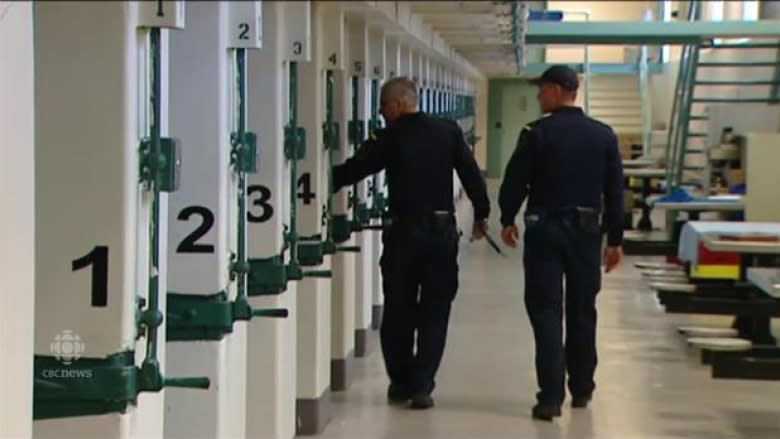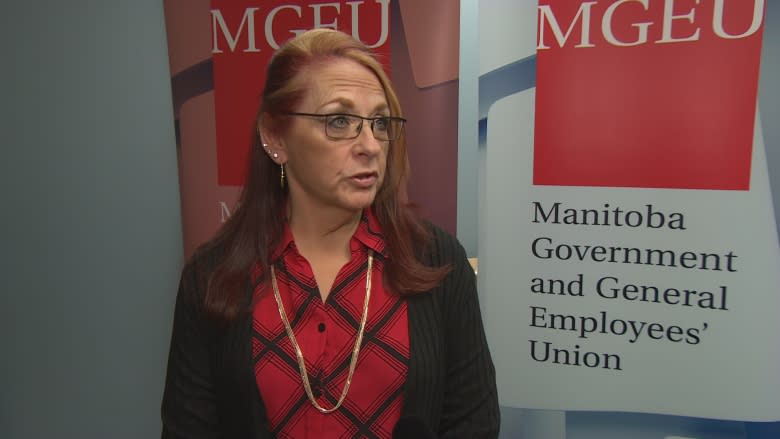Province owes unpaid overtime to more than 1,000 Manitoba Corrections staff
It's been the subject of grievances for more than a decade, but more than a thousand Manitoba Corrections staff are still waiting for overtime pay they never received.
The dispute centres on unpaid overtime on statutory holidays for part-time staff working for Manitoba Corrections. The Manitoba Government and General Employees Union (MGEU) filed a grievance over the issue in 2005, but a resolution is taking more than 10 years.
"We thought it was settled and fixed. It was through the due diligence of the Corrections membership that stayed on top of it, watched it and brought it to our attention again and said it wasn't fixed," said MGEU president Michelle Gawronsky.
According to Gawronsky the government pledged to fix the error, but time dragged on and the union filed another grievance in 2014. Last September, arbitrator Michael Werier issued an order siding with the employees, compelling the government to pay out staff who retired or credit the extra time to workers still on the job.
The issue is so complex and affects so many workers over such a long period of time, even the union is not sure of the total amount owed.
"We're thinking it's well over a thousand employees. Because you are going back to 2005," Gawronsky told CBC News.
The total payout could be in the hundred of thousands or millions of dollars.
Gawronsky says the MGEU is still trying to crunch the numbers, but the math of so many hours multiplied by more than a thousand staff adds up to a lot of unpaid compensation.
"Well, there are 12, 13 stats (statutory holidays) a year, and they didn't have it right on the overtime stat pay since 2005," Gawronsky said.
Province hasn't shown the money yet
Despite more than a decade of work on the mistake and an arbitration order nearly four months ago, none of the payouts have been made and the union is wondering what the hold-up could be.
"They are telling us they are working on it and it is a very good question. We are wondering the same thing and we keep [asking] OK, where are we at? How come this is taking so long? It's now January. These folks showed up for work on time. They gave up their family time and showed up on stats ... so why is this taking so long to get the payouts done?" Gawronsky said.
The government is obliged by the arbitration order to track down employees that retired or quit voluntarily in the period in question and pay what is owed. Gawronsky says there are some staff that have passed away since 2005 and it's not clear if the estates of those workers are owed the underpayment.
CBC News asked the provincial government to detail how many employees were affected, how much money was involved and what caused the payroll problem in the first place. An interview with someone knowledgeable about the issue was also requested.
Instead a spokesperson for the Manitoba Civil Service Commission emailed this response: "The order addresses the overtime calculations for part-time correctional officers who worked on statutory holidays for more than eight hours. Work is underway to make those adjustments as quickly as possible and the system has been fixed to ensure this doesn't happen again in the future."
Second payroll system error
Earlier this month it was revealed the Winnipeg Regional Health Authority was seeking $1.2 million in overpayments back from staff. Just over 1,200 health-care employees were allegedly overpaid between 2012 and 2016 due to what the WHRA believes were clerical errors.
Hundreds of staff have received letters asking for repayment. The Manitoba Association of Health Care Professionals and the MGEU have filed grievances over the request.
Gawronsky can't draw firm conclusions about the two separate pay issues, but believes the government uses SAP payroll software in both cases and perhaps there are some solutions.
"Get on top of the payroll system and figure out where are the problems in it. Our members are working in the payroll system as well, and I'm sure they've got suggestions and recommendations to management to say, there are issues here; there are problems," Gawronsky said.



